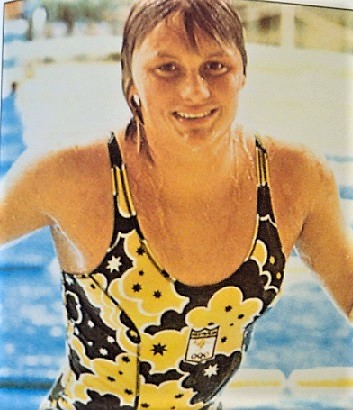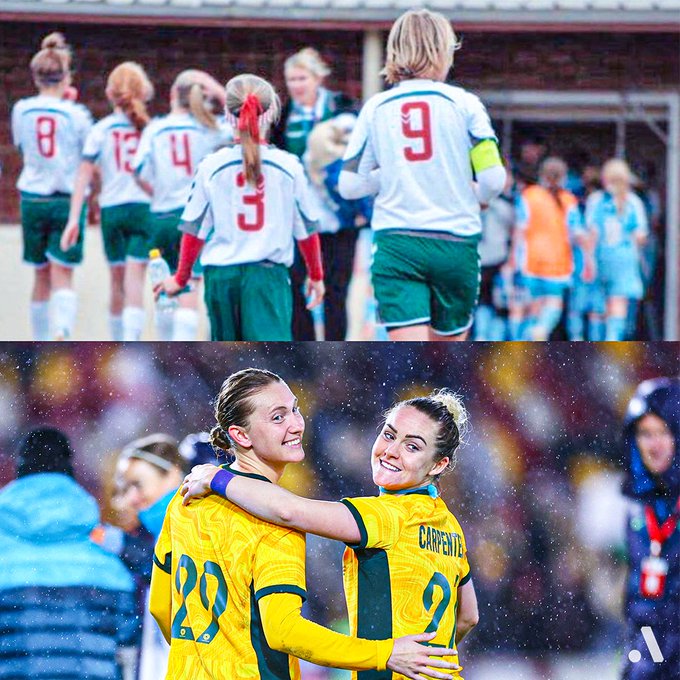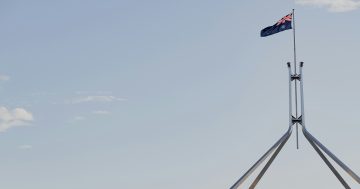
The legendary Shane Gould in her element. Photo: Supplied.
Back last century when youth and speed were on my side, my most prized possession was a Shane Gould swimsuit.
Oh gosh, the wearing of it – resplendently green and gold – embedded a go-faster gene in the brain under my bright-yellow swimming cap that guaranteed nothing came between me and the 50 metres to the end of the Olympic pool in Young.
In my mind, I would glissade through the clear blue water to golden glory, which – in effect – was a blue felt ribbon with scratchy gold writing that was forever tacked to what was then a state-of-the-art particleboard pinboard in my farmhouse bedroom.
Yeah, OK. Right above concavely increasing red and white ribbons, a few equestrian (brown) and many participation certificates.
But back then, around 1974 – which ages me unfairly – Shane Gould was my first sporting hero. When I found my land legs, it was Raelene Boyle. I never mastered tennis so Evonne Goolagong was a bit of an enigma, although possibly touchable, given she too was from out here.
Out here being the NSW South West Slopes – and, back then, according to weather reports, the Riverina, which seemed the same.
Out here back then – actually, not much has changed since back then – sport was central to our daily lives. In summer, it was an endless pool fest with dad – and his starter’s gun – making it his mission to nail our starts, there was Friday night swim club in town (helped by Whiz Fizzes and Big Charlie’s) and – when we showed promise – we were taken out to the back dam for lots of laps.
That was after we saw Jaws and nothing, not even Mum, could convince us there were no sharks in dams at the back of Thuddungra. I’m still not convinced. Be assured, mum, I rest on my lion-hearted laurels knowing I stepped into those murky waters unclear on how many stock lives they had previously claimed and now knowing that snakes can swim.
Cricket and soccer peppered other months, and my netball games drew the short straw by comparison. Saturdays and Sundays were long days spent lying on a car bonnet gazing at the sky waiting, waiting for the games to finish. There was never any talk of being included.
Yesterday, speaking with Cowra councillor Cheryl Downing, we reflected on the then and now.
The then of having the same range of sports but not being able to participate in all of them.
The now of how two girls from this same district – Clare Hunt and Ellie Carpenter – have occasioned an enthusiasm for a sport that’s been oft-overlooked, despite its popularity in small towns.

Reunited again – Clare Hunt of Grenfell and Ellie Carpenter of Cowra are overnight heroes thanks to the Matildas’ win over reigning Olympic champions Canada. Image: Liberty A-League.
And the knowing that even if you don’t play league (because that seems to be the greatest spawning ground) and you come from country NSW, you can make it to the world stage. Even when you’re a girl and you play soccer.
Right now out here it’s difficult not to get caught up in Women’s World Cup football with the paddocks of the South West Slopes completely decked out in green and gold and the small communities of Cowra and Grenfell beaming from ear to ear.
Strangely, the further the girls progress in the competition, the more vivid become the colours of the district’s early flowering canola crops and the more people are talking about where they were the night of the penalty shootout.
I experienced it like an early 19th-century inhabitant, by a giant burning tree stump listening to the wireless commentary flipping Dolphin moves with the Matildas.
Out in the country, flowering crops, like sport, are barometers of confidence, belief, illuminating a hard-fought path to hope and glory.
We know that track is lined with chilly early morning weekend starts along long roads to parts unknown. The daily schlep of travel to school, then sport, juggling homework long after your mates have finished theirs and the control, regulation, preparation and determination required to be seen.
Ellie Carpenter says she would spend up to 20 hours a week on the road in pursuit of her football dreams.
Travelling from Cowra to Canberra or Sydney and back, up to three times a week, honing her fledgling talent, was the norm for the Carpenter clan, whose efforts in supporting her quest for sporting success have most certainly paid off.
Few knew the years Clare Hunt battled injury after injury before she debuted for the Matildas earlier this year.
Inspired by the success of her best friend, Clare Wheeler, she pushed through.
“I knew there was a lot of hard work involved, but I’m so glad that despite all the setbacks, I continued and didn’t give up on my own path.”
There’s a lot to be said for buoyancy bubbling around another person’s success. It sweetens the long roads and pitted passageways. It makes the unreal seem real and possible.
As young students parade their green and gold, celebrating the Matildas in the small schools of the central west, there’s no telling who among them will draw from this.
As Cheryl said at the end of that 45-minute chat – and she’s said it before – but it should sit high among the quotable quotes: “We can’t be what we can’t see, but the fact they can see a Cowra girl who grew up on the same fields as them, playing against the world’s best, is amazing.”
The Shane Goulds of the past may have cleared the way, but the Matildas of today and tomorrow have certainly claimed the bridges over the great city-country divide.
Cheer on the Matildas in their semi-final clash against England in the 2023 FIFA Women’s World Cup tomorrow night.
Original Article published by Edwina Mason on About Regional.












